
Around the Bloc: Bosnia Courts May Miss Deadlines for War Crime Cases
Most sensitive cases due to be resolved by December, but Bosnia’s courts face huge backlog and alleged lack of will.
More...We kindly inform you that, as long as the subject affiliation of our 300.000+ articles is in progress, you might get unsufficient or no results on your third level or second level search. In this case, please broaden your search criteria.

Most sensitive cases due to be resolved by December, but Bosnia’s courts face huge backlog and alleged lack of will.
More...
This article aims to examine the ethnic minorities’ state of affairs in light of the constitutional reforms in Armenia since President Serzh Sargsyan decided to open the consultations with the parliamentary factions on November 2005. Policy-makers and representatives on behalf of ethnic minority groups have been taking relevantly place at the recent wave of democratic protests throughout the process of constitutional reforms in order to entrench a more stable multiparty system, independent judiciary, new balances between State and civic society. Hence, what is the reason to endorse those tiny ethnic groups such wealth of minority rights and political recognition? Why have ethnic Armenian minority groups not had objections or particular regrets in the constitutional reform processes? In turn, may this high level of internal recognition to ethnic minority groups foster assistance to Armenian minorities and protect Armenian heritage into the de facto entities of the South Caucasus?
More...
Experts usually agree that security (meant as safety) is a complex concept and that it refers, in general, to freedom from any threats to the fundamental values. Hence, the author presents in her paper the views on security. But since security as a natural and inalienable right is given particular prominence in the catalogue of rights protected by international law, the paper also addresses the instruments of international law that regulate these issues. The most important Polish legal instrument regulating security issues is the Constitution of the Republic of Poland adopted in 1997. It should be noted that the concept of national security has not been adequately explained in the Polish Constitution and generally, this term does not appear in the text separately. In this respect, Article 5 of the Constitution is of importance: “The Republic of Poland shall safeguard the independence and integrity of its territory and ensure the freedoms and rights of persons and citizens, the security of the citizens, safeguard the national heritage and shall ensure the protection of the natural environment pursuant to the principles of sustainable development”. Security regulations can also be found in other articles of the Constitution. The author emphasizes that, due to the broad scope of security issues and to the abundance of bodies and their subordinate units and offices that carry out tasks regarding this scope, there is a necessity to harmonize their activities. The constitutional regulations can be helpful in this respect. The Constitution clearly states that higher responsibility in this respect rests with the Council of Ministers. The role of the President is limited to supporting the government. This is clearly visible in the regulations concerning jurisdiction.
More...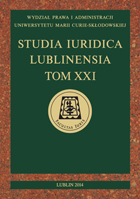
The paper is an attempt to analyze the self-government of professional public repose confidence as an institution of constitutional law. Considering that the Polish Constitution of April 2 1997 contains regulations for both the self-government as well as qualified self-governments, the self-government of professional public repose confidence belongs to the second group. An important element of this analysis is the reference of these regulations to the principles of government of the Third Republic. These are included in both the Polish Constitution as well as in the preamble to the Constitution. Indeed the self-government of professional public repose confidence is contained in the three principles: subsidiarity, proportionality and self-government. The functioning of these self-governments is also associated with the principle of self-government (Article 7 of the Constitution) and a democratic state ruled by law and implementing the principles of social justice (Article 2 of the Constitution). In order to properly define the role and functioning of the self-government of professional public repose confidence we should point out the differences between the self-government of professional public repose confidence (Article 17.1 of the Constitution) and other types of professional self-governments (Article 17.2 of the Constitution). On the other hand, to achieve this objective it is necessary to analyze them in conjunction with the provisions of Articles 22, 31 paragraph 3 and Article 65 paragraph 1 of the Constitution. However, in order to analyze the self-government of solicitors which is one of public repose confidence profession, it is necessary to examine the Law on solicitors, as well as the Code of Ethics Counsel. The regulations contained in the abovementioned documents are an extension of the normative content of the Constitution relating to the public repose confidence profession. The result of the analysis above is an attempt to define self-government of public repose confidence profession and in particular to identify the elements necessary for its functioning. Furthermore, the role and activity of the self-government of solicitors will contribute to development of Poland as a democratic state ruled by law that implements the principles of social justice and ensures the freedoms and rights of persons and citizens which are important elements of civil society.
More...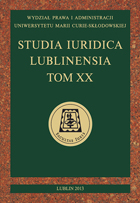
I would like to summarize the above points in the following: It is obvious that criminal law is increasingly used for security policy, risk management and security. Thus, the criminal law is removed from the actually indispensable, namely, guilt and proportionality, as well as the understanding of criminal law as ultimate and its "fragmentary" character. Effective constitutional and human rights control is of crucial importance for the inclusion of a security offense.
More...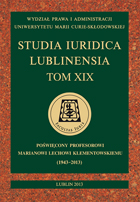
In 1949 Polish and Czechoslovak lawyers prepared a draft of joint family law for both states. It was prepared for political reasons, to implement communist law in two “people’s democracy” countries. It was based on Soviet law. The Czechoslovak part was quicker in passing the new law. The final debate took place in National Assembly on December 7th, 1949. Only three persons took part in it. It had completely ideological character. Especially the Minister of Justice had very communist speech. He criticized strongly “capitalist” family law and attacked the Catholic Church, because Czechoslovak bishops were protesting against civil marriages. In fact the draft on family law was used by the communist authorities to create anti-church atmosphere. The bill was passed without votes against. Similar debate took place in Polish Sejm in 1950, although it had a little bit less ideological character.
More...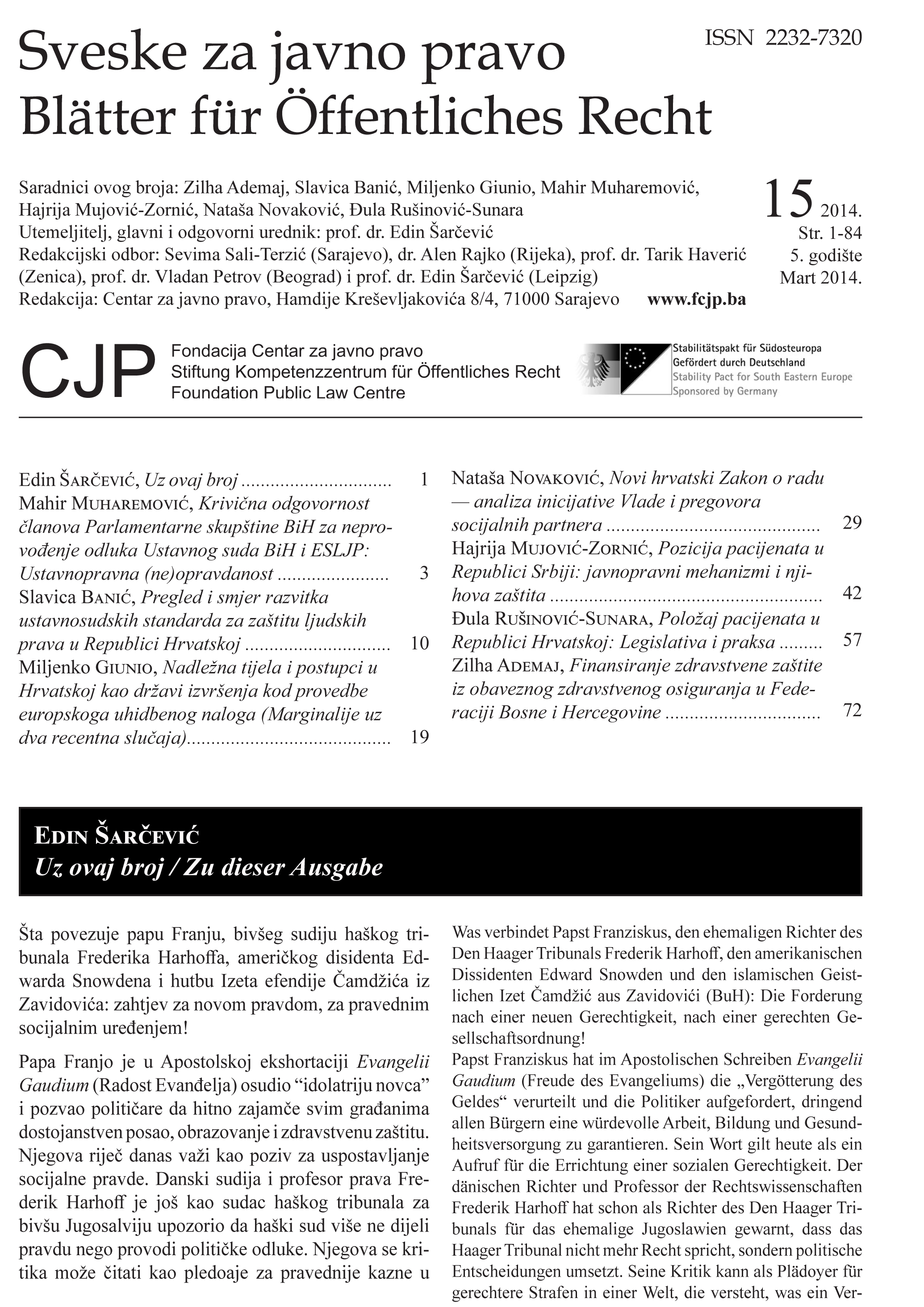
Izvršavanje odluka sudova je od ključnog značaja za svaki pravni sistem. Odluka suda koja se ne izvrši, neće proizvesti željeni efekat, ukoliko subjekti na koje se ona odnosi ne postupe po njoj. Dakle, pravda koja se izriče u neprovedenim odlukama sudova je nedorečena i nezadovoljena pravda. Zbog toga svaka država nastoji maksimizirati efikasnost provođenja odluka svojih sudova, pri čemu razvija određene mehanizme koji će osigurati implementaciju sudskih odluka.
More...
The goal of this review article is to give an overview of the constitutional solutions and the policy of employment in the Republic of Macedonia. Emphasis is given on scientific explanation of the terms employment and employed. These terms are in direct relation with the right to employment, as a topic that has been elaborated. They are explained from the view of the legal theories in the science of labour law and the science of social law. From the view of the legal regulation, this issue is highlighted on two levels. Firstly, on the level of our national law, more precisely, the legal regulation of Republic of Macedonia. Secondly, on the level of the international law. From the view of the legal regulation in our state, the key issue is the constitutional-legal regulation; that is, the solutions that are contained in the Constitution. Moreover, the Constitution of Republic of Macedonia guarantees the right to work, the right to free choice of work, and other rights connected to this right. Our Constitution completely regulates the rights and freedoms of the citizens of Republic of Macedonia. Apart from the Constitution, this article highlights the aspects that are related to the legal regulation of the right to employment, as well as the meaning of the collective agreements, which represent specific source in this field. From the view of the international law, this article emphasizes on adequate level the aspects of the more significant acts that are brought on the level of the international community, such as, acts of: The International Organization of Labour, the Universal Declaration of the UN, and other international acts. On the level of the regional community shortly are emphasized the more important decisions that contain the European Convention for Protection of Human Rights and Basic Freedoms, and the European Social Decree.
More...
Resolving the housing issue is solving one of the basic existential needs of every worker, citizen of the Republic of Macedonia. With the Constitution, as well as with the signing of the European Social Charter, the Republic of Macedonia accepted the obligation to promote the material, legal and social protection of the family life by taking appropriate measures, such as encouraging the housing construction. With the adoption of the Law on Housing in 1998 ("Official Gazette of the Republic of Macedonia" No. 21), the category of socially owned apartments was abolished and the apartment started to be treated as an economic category. With the termination of the construction of socially-owned apartments, the housing issue was solved, and it was solved, according to personal possibilities, mostly with housing loans with high interest rates. Unemployment and low wages additionally adversely affect the decline in the living standards of citizens, thereby reducing the opportunities for housing provision. The inability to solve this life-threat is one of the main reasons, especially for young people, for leaving a job abroad. For the Federation of Trade Unions of Macedonia, housing is an important segment in the construction of a welfare state, as declared by the Republic of Macedonia. Therefore, the CCM's program strategy is, among other things, the commitment to conduct adequate housing policy in the country, which has a strong impact on the provision of living standards for workers and citizens of the Republic of Macedonia. In order to contribute to the creation of more favorable conditions for solving the housing issues of the workers and the citizens, and thus to contribute to greater motivation and productivity in the work, SSM launched an Initiative for the Republic of Macedonia, establishing a solid housing fund in the Republic of Macedonia.
More...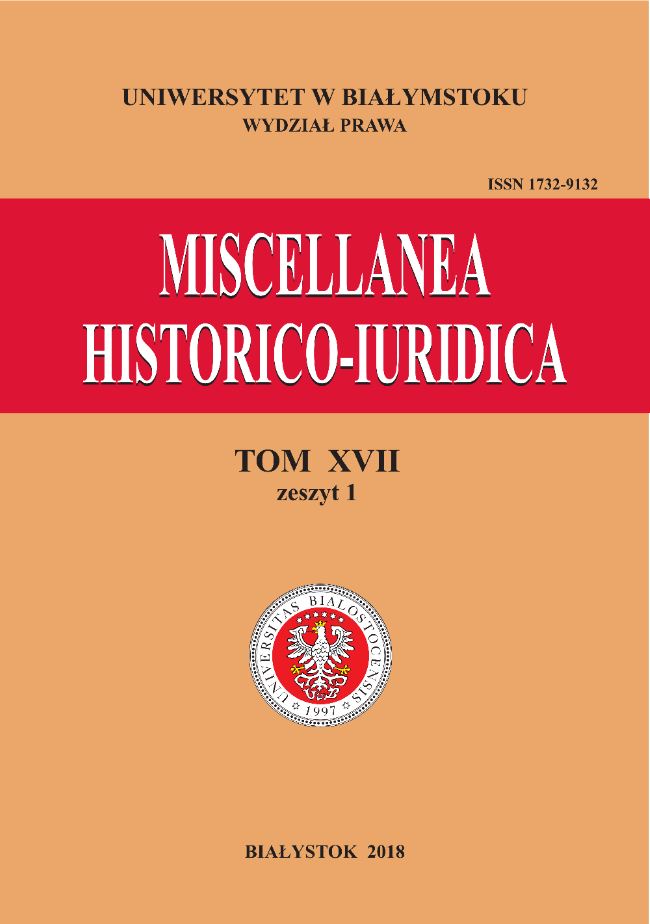
The subject of the article is to identify the factors and conditions that determined the system of government of the II Republic of Poland in the first years after regaining independence at the end of 1918. The study is devoted to three issues: the system of government at the turn of 1918 and 1919, the system of government under the Small Constitution and the system of government in the light of drafts of the Constitution of the II Republic of Poland. According to the author substitutes of the parliamentary system of government were born already in the first weeks of the functioning the Polish state authorities. Under the Small Constitution of 20 February 1919, an attempt was made to introduce the system of parliamentary supremacy. This turned out to be impossible given the high level of authority enjoyed by the country’s head of state – Józef Piłsudski, who also served as its commander in chief. Drafts of the Constitution assumed (mostly) the weak position of the president. In this way, the Constitution of 17 March 1921 adopted the parliamentary-cabinet system of government, which was modeled on the system adopted by the III French Republic.
More...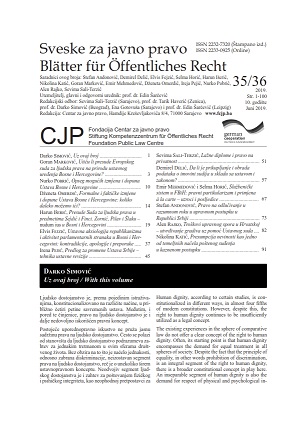
In December 2019 it will ten years of Sejdić and Finci judgment of the European Court for Human Rights. It was followed by Zornić, Šlaku and Pilav judgments. The Court found that Bosnian Constitution was not in the line with the European Convention for Human Rights. In Zornić and Šlaku judgments under Article 46 of the Convention, Court stated that in order to implement these judgments, Bosnia and Herzegovina would have to introduce constitutional and legislation amendments. All four attempts by B&H public authorities to enforce Sejdić and Finci group judgments were unsuccessful. These attempts were characterized by: a short deadline for the drafting constitutional amendments and amendments to the Electoral Law, failure to hold sessions of the working group/parliamentary commission due to the absence of its members and consequent lack of a quorum, apparent transparency in work and lack of will to fulfil the mandate of the working group/parliamentary commission and efforts to reach an agreement on amendments. Parallel to these formal attempts, there was non-institutional process with the aim to reach a political agreement on constitutional reform. This two years process involved seven presidents of parliamentary political parties and it was facilitated by European Union. The process was not transparent, public has no insights about different proposals and it was conducted only in closed circle of seven politicians. Eventually it did not deliver any results. In order to have Court’s judgments implemented, a few conditions need to be met: it has to be done within Parliamentary Assembly which has a competence to change constitution, Council of Europe bodies like Parliamentary Assembly, Secretary General and its member states should act in synergy to produce a pressure on Bosnia and Herzegovina to fulfil its international obligation such is Court’s judgment implementation and Bosnian politicians have to understand implementation of these four judgments as issue of the rule of law and not to use it for its party and ethnic interests.
More...
The article deals with the acquisition of property according to texts from Varon`s work „De re rustica“. The sale and the mancipatio are examined in De re rust. 2.1.15 and 2.10.5, as well as the rule “emptionibus et traditionibus dominum mutat” in De re rust. 2.6.3.
More...
In the 6th century in the Byzantine Empire the problems of the state administration led to disintegration and the social order was shaken. Urgent measures are needed to change and balance the social, economic and administrative structure of the Empire in order to fulfill Emperor Justinian's plans for the renovatio imperii. The interne and extern stability of the state has been made conditional on an increase in tax revenues and other fiscal measures. The article tracks the legal measures in collecting the taxes, but also the protection of taxpayers from abuses of the tax administration, alleviating the tax burden etc.
More...
This article deals with the question about the correlation between the legal relations based on land servitudes and on legal relations resulted by the proximity of real estates. In the paper are reviewed the similarities and the differences between these two legal relations. It is outlined that nevertheless the two legal figures differ between them, often they are mixed each other and identified as same matter. The author made an analysis of the reasons why this mixture is widely admitted and he carefully examined its genesis starting from the period of the Roman law. Also the author considers that even though these institutes have some common features, both legal relations are different by their essence, functional mechanism and the legal effects. In the frame of this comparison are outlined also the specific differences which characterize both of them. As a conclusion the paper reveals methodical and cognitive marks which can be taken into account in future research and analysis of apparently close but at the same time different legal figures of the Property Law.
More...
The article deals with the possibility of developing tax decentralization and its main part – the institute of local taxes in Bulgaria. Local taxes are charged by the municipalities and are established by the Local Taxes and Fees Act. According to the fifth amendment to the Constitution of the Republic of Bulgaria the Municipal Council determines the amount of the taxes within the range established by the law (till the end of 2007 the rates and amounts of local taxes were provided for by the law). There is analyzed application of the principle for statutory establishment of tax liabilities in the spirit of the principle of the fiscal decentralization.
More...
In the successive republics that gained independence with the dissolution of Yugoslavia, politics and micro-nationalism re-emerged in the Balkans within the framework of identity. With the rise of identity politics, conflicts were based on expansionist nationalism. There is a belief that Yugoslavia ruled communism from its foundation and its dissolution. Although communism, leaders within the Federation have held nationalism at hand. With the disintegration of Yugoslavia, this nationalism became an ideology and a tool in the administration. Many leaders have used it as a nationalist election campaign for the independence of countries; the constitution proposals were arranged with the sensitivity of this nationalism. Nationalism based on the marginalization in successive republics has removed nations with historical affinity; countries' constitutions and other legal arrangements have been cautious, especially against national minorities. In this study, understanding of nationalism in successive republics and their effects on each other are tried to be examined.
More...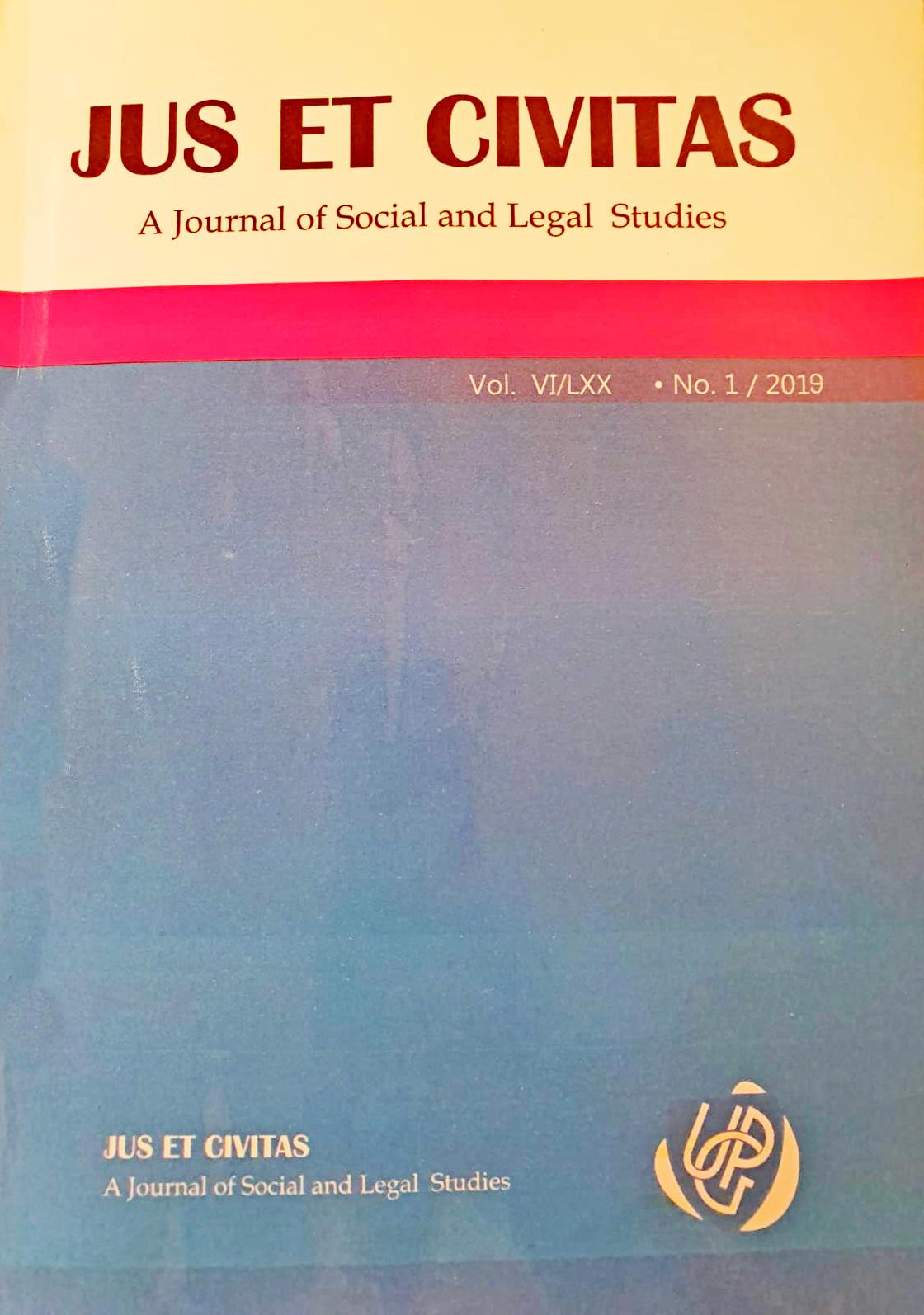
Discriminarea presupune un fenomen de aplicare a unor diferenţieri în recunoașterea drepturilor salariaților, efectul unor astfel de acțiuni constând în lipsa de utilizare a folosinței drepturilor și libertăților fundamentale ale acestora. Existența discriminării constă astfel în nerecunoașterea criteriilor protejate precizate în actele normative interne și europene ce au ca obiect egalitatea de tratament, chiar și practicile aparent neutre ale angajatorilor putând determina efecte nelegale. Sub acest aspect, facem trimitere la practicile ce induc direct sau indirect restrângerea, înlăturarea recunoaşterii, folosinţei sau exercitării drepturilor şi libertăţilor fundamentale ale salariaților în raporturile de muncă. Articolul detaliază fenomenul discriminării salariale în raporturile juridice de muncă ale funcționarilor publici, prin prisma aplicării noii legi a salarizării, în contextul în care aceasta cuprinde dispoziții contrare actelor normative în materie de nediscriminare existente în circuitul juridic intern.
More...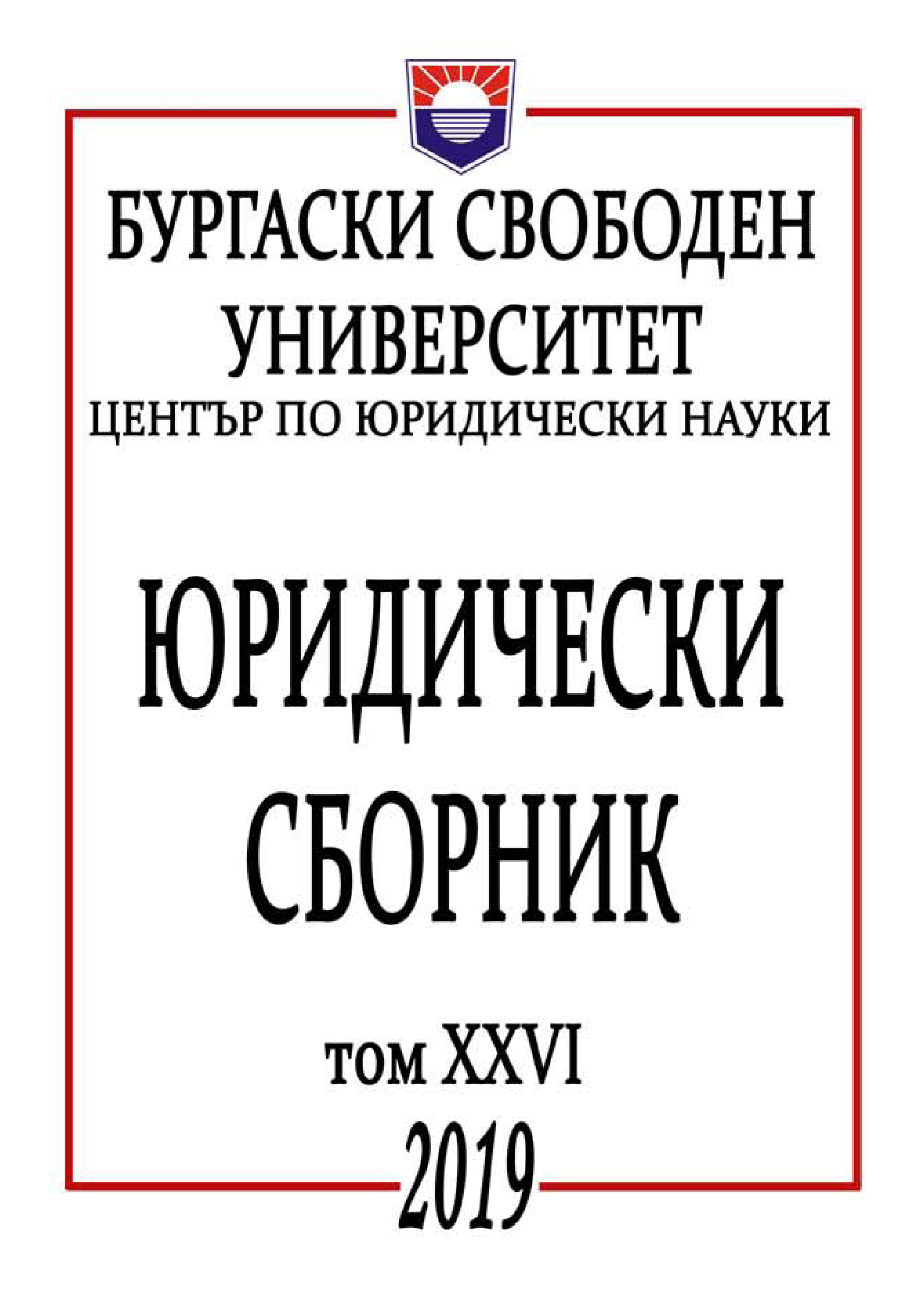
The article discusses the frequent cases of irregular summons to parties in district court cases due to their emigration and the problems they face in calling for them, as well as the inability to protect their interests due to the lack of electronic summons and e-justice at the moment. The necessity of electronic summons and e-justice in the Republic of Bulgaria is argued.
More...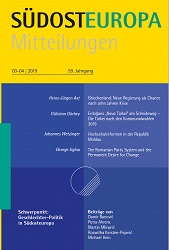
Gender equality as a political and legal principle has been put forward within the modern constitutional systems in Southeast Europe. Implementing this principle also includes introducing anti-discrimination laws and changing legal, social and political practices in the respective countries. By adopting different directives and politics, the European Union has emphasised the importance of gender equality in the EU. Additionally, this has become one of the political criteria for the countries that want to become EU member states. Beside the EU, the Council of Europe has adopted a Recommendation on the Protection of Women against Violence (2002) and the Convention on Preventing and Combating Violence against Women and Domestic Violence (2011), the so-called Istanbul Convention. It came into force on 1 August 2014 and is a binding legal document for the countries that ratified it. Moreover, the European Court of Human Rights (ECHR) has developed comprehensive case law directly or indirectly related to gender equality (e.g. prohibition of torture and/or inhuman behaviour; prohibition of discrimination). In the Council of Europe member states, there still is a gap between the social context and the normative sphere. Nevertheless, the ECHR in 2012 clearly stated that references to traditions, general assumptions or prevailing social attitudes are insufficient justification for a difference in a treatment on grounds of gender setting the way of how we should interpret and implement conventions and recommendations adopted by the Council of Europe.
More...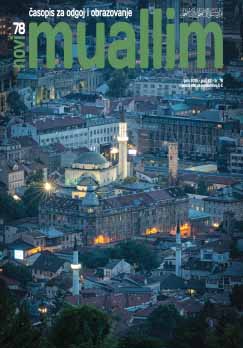
People always moved from one place to another, from one state to another, from one continent to another. Causes and motives for their migrations were different. At that time, these were great seas of nations conditioned by natural or climatic conditions, whereas sometimes there were wars and other social processes. Thus people became acquainted with the other and the different, sometimes through confrontation and more often in peaceful coexistence. We are still witnessing similar processes today. Since Muslims of different nations are an important element of the European population, especially in the Western Europe, there is a need for their more effective integration into legal, sociopolitical and cultural frameworks of these countries. Thus, a special approach to education of imams who work in the countries of European Union is a necessary requirement for such integration. Education of imams there, in addition to theological knowledge, should include comprehensive introduction to the constitutional and historical texts and the context of the particular state and society, because it contains and represents the motives, sources, frameworks and goals of establishing, directing and initiating all social processes in the state and in the society. Understanding on the basis of the historical, legal and political contexts, an imam’s actions shall help in building capacity to become guides in the community. Such education for imams in Europe should be provided by Islamic Community in B&H within its higher education institutions.
More...